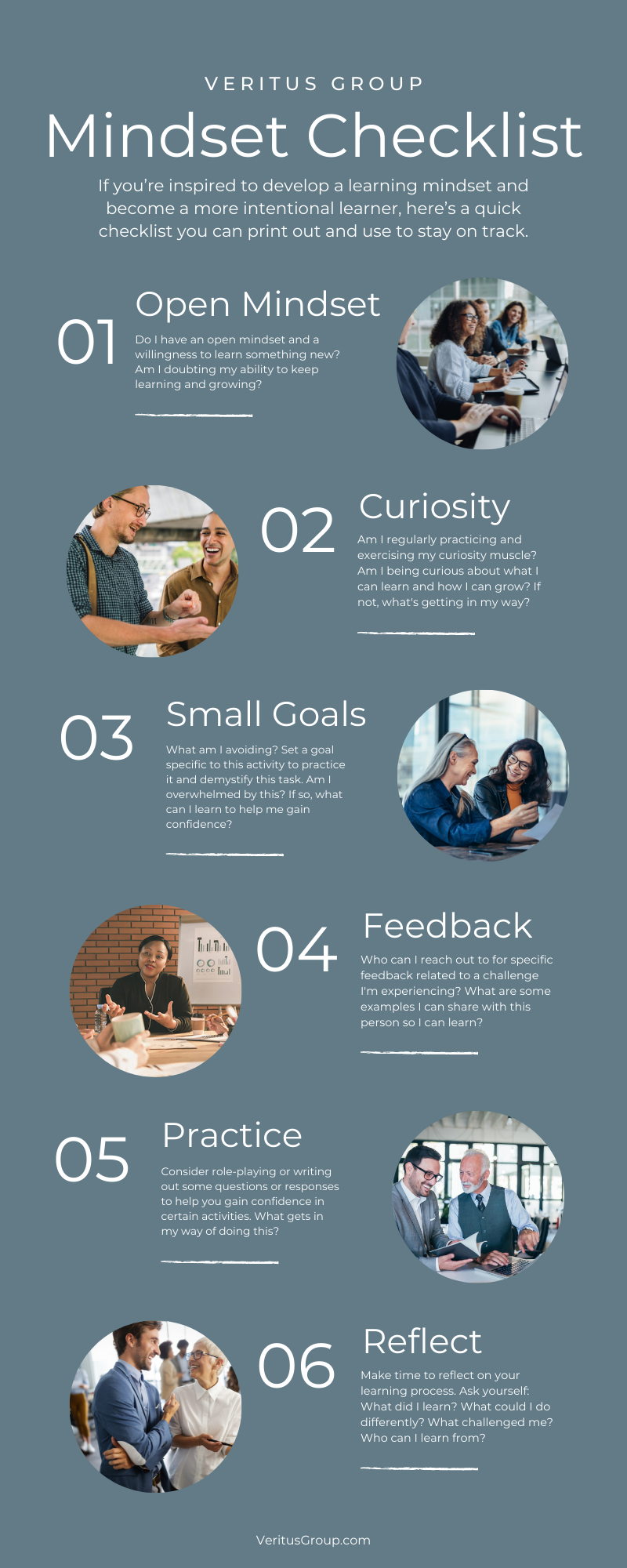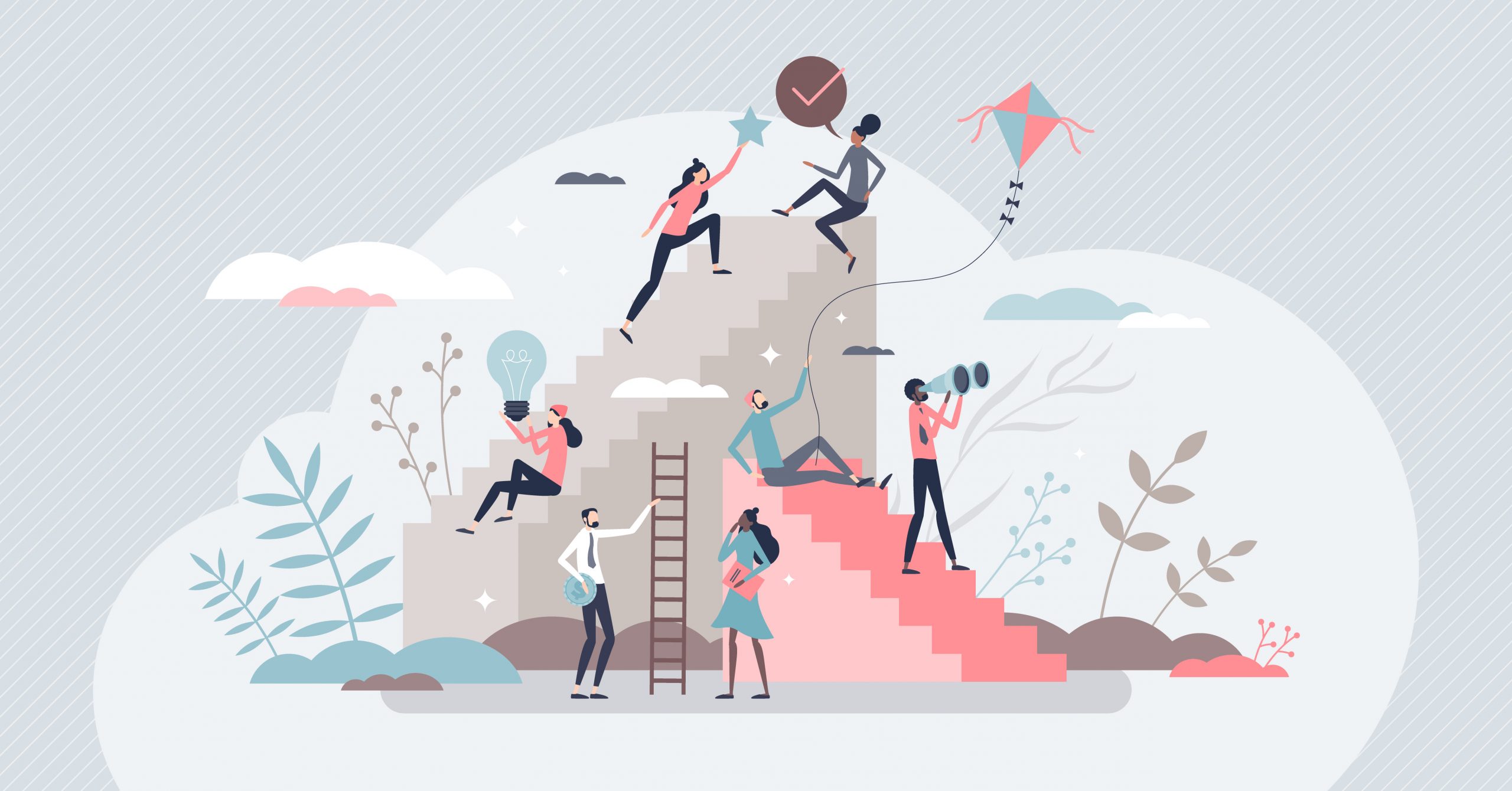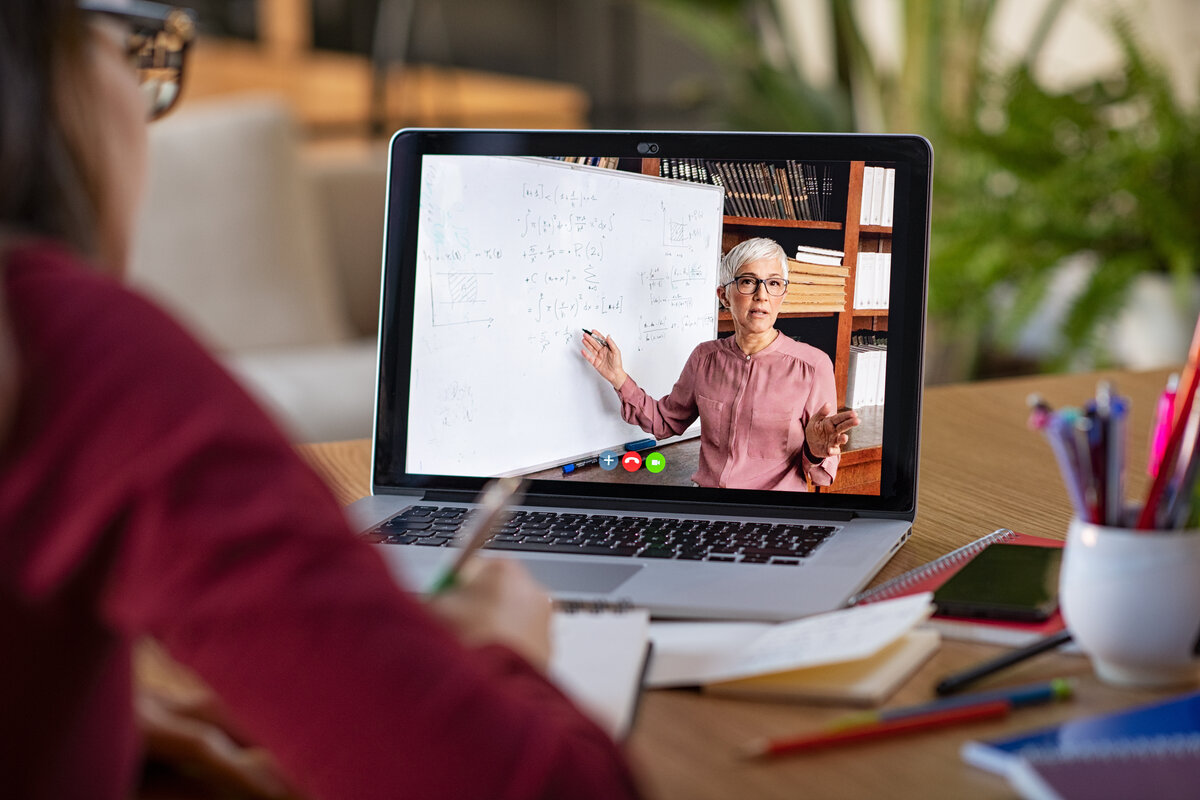Recently, I shared a blog focused on the importance of learning something new and how this can drive happiness, both in your career and in your personal life.
In this post, I want to dive into how you can develop a more intentional learning mindset when there are constant demands on your time. The first thing to remember is that learning itself is a skill that you need to develop. And it all starts with getting your mindset right.
Let’s start by thinking about the mindset and skills of great intentional learners. In a recent article by McKinsey, they shared these as the key traits found in life-long learners:
- Learning happens everywhere and is a continual process. Each experience teaches you and provides a learning experience. When you see every interaction as an opportunity to learn, you can develop a learning mindset. Here’s a quick example of this:You just got off a call with a donor and you have this feeling that it could have gone better. Instead of ignoring it and moving on because it makes you uncomfortable, you take a few moments to process why that might be. You realize that you had not taken time to prepare and define your objective for the meeting, so it was not really meaningful or productive. As you prepare for the next call, you take what you learned and approach it differently. You end up having a deep conversation about the donor’s interests and passions. That uncomfortable feeling was your opportunity, and you chose to be a learner so you could have more meaningful experiences in the future.
- There’s a focus on growth. In her research, Stanford psychologist Carol Dweck, speaks to people having either a fixed or growth mindset that they hold about their beliefs. The fixed mindset believes that you are the way you are, and that cannot be altered. You are either good at donor calls or not, great at writing donor offers or not, good at putting your donor experience in the data system or not… and there isn’t room to not know how to do something or grow. The growth mindset, however, believes you can grow, learn, and change; it is not fixed. You are allowed to not know something and make mistakes because that is part of the learning process. Ultimately, what you believe impacts what you think is possible and your actions. It drives your possibility.
- Curiosity is key to being in the cycle of continual learning. At Veritus, we talk a lot about this one. Curiosity is about awareness and openness and is a skill you can develop. It’s what inspires you and creates that cycle of continual learning. If you want to develop your curiosity, start with something you love.
It also helps to face your fears. You can’t be curious about how to make better donor qualification calls if they make your palms sweat and you avoid them. Ask yourself, what makes me nervous about these calls? What do I think is going to happen? What beliefs about myself and my skills might be getting in my way?
So, if you’re inspired to develop a learning mindset and become a more intentional learner, here’s a quick checklist you can print out and use to stay on track :

Whenever I’ve encountered a professional who is candid about what they want to learn and develop as a skill set, and they reach out to ask others for ideas and input, they totally earn my respect and trust. When someone acts like they know it all, they have done this for years, and they aren’t interested in new ideas, I not only feel less trusting, but I also feel kind of sad because they are missing out on fully achieving who they could become.
Life is such an exciting adventure if we realize we’re not stuck being who we are today or defined by the skills and knowledge we have right now. Everyone has the potential to continue learning, developing, and growing. I don’t know about you, but when I face a fear, learn something new, talk to a colleague about how they do things so I can learn, or am curious about what is possible – that’s when life feels vibrant and interesting. And that’s how I get better at what I do.
Karen







0 Comments